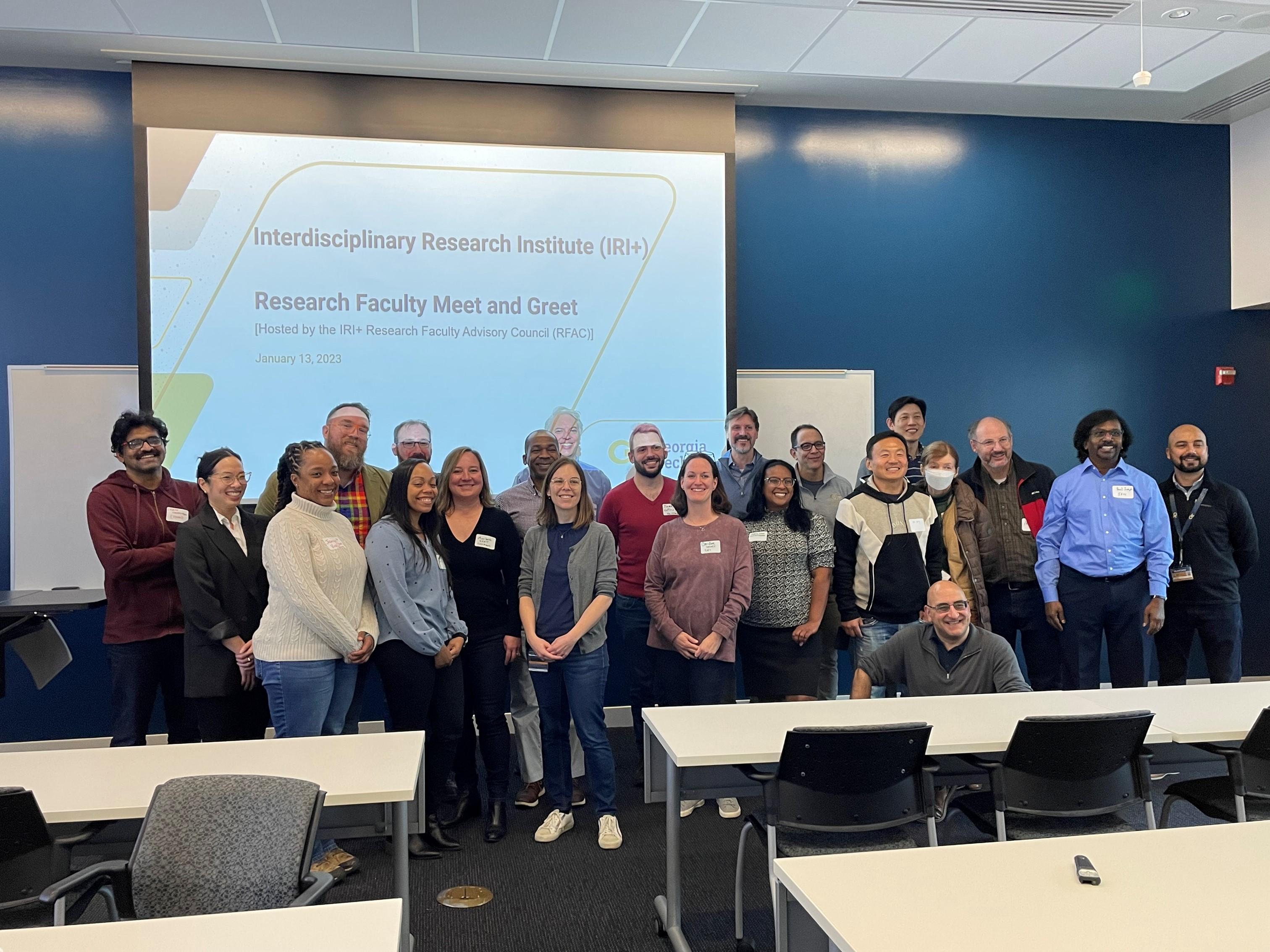Georgia Tech Interdisciplinary Research Institutes Create Faculty Advisory Council
Oct 02, 2023 — Atlanta, GA

Research faculty at the Georgia Institute of Technology now have their own advocacy group. Since 2022, the Research Faculty Advisory Council (RFAC) has increased research faculty engagement and addressed concerns from researchers in the Interdisciplinary Research Institutes (IRIs), joining similar organizations that address such needs in other colleges.
The group addresses issues such as retention, professional development, recognition, and compensation. Julia Kubanek, vice president for Interdisciplinary Research (VPIR), formed the group after hearing feedback from research faculty and modeled it after a similar council in the College of Sciences.
“This advisory council has helped clarify how we can improve both the status and experience of research faculty on campus,” Kubanek said. “The recommendations they’ve provided and the initiatives they’ve launched are already making a difference.”
The 12 members are nominated from across the IRIs, plus two other interdisciplinary research units supported by the VPIR. These members include:
- Vishwadeep Ahluwalia (Center for Advanced Brain Imaging)
- Michael Chang (Brook Byers Institute for Sustainable Systems)
- Sriram Chockalingam (Institite for Data Engineering and Science)
- Christine Conwell (Strategic Energy Institute)
- Andrew Dugenske (Georgia Tech Manufacturing Institute)
- Ulrika Egertsdotter (Renewable Bioproducts Institute)
- Evan Goldberg (Global Center for Medical Innovation )
- Walter Henderson (Institute for Materials)
- Johannes Leisen (Parker H. Petit Institute for Bioengineering and Bioscience)
- Paul Joseph (Institute for Electronics and Nanotechnology)
- Leanne West (Pediatric Technology Center)
- Clint Zeagler (Institute for People and Technology)
In its first year, RFAC had two co-leads: Andrew Dugenske, the director of the Factory Information Systems Center and a principal research engineer at the Georgia Tech Manufacturing Institute, and Paul Joseph, a principal research scientist and director of External User Programs for Southeastern Nanotechnology Infrastructure Corridor.
“Although the research faculty contribute significantly to the overall growth of Georgia Tech, we remain largely underrepresented, unrecognized, and underemployed because of the lack of suitable platforms to talk about the challenges faced by research faculty colleagues,” Joseph said. “It was not a surprise that the same concerns surfaced and were discovered by the council when we collected input from the research faculty throughout the IRIs on issues that concern and are important to research faculty.”
Although Joseph and Dugenske have completed their terms in their leadership roles, they are satisfied with RFAC’s initial success in creating awareness of research faculty challenges on campus, and initiatives that include a mentorship program with the Research Next team, a Research Faculty Mentoring Network, and efforts in RFAC bylaws creation. Leanne West and Walter Henderson now serve as co-leads.
“It was great for the administration to recognize the many contributions that research faculty make to the Institute and establish a way to improve research faculty job satisfaction and engagement,” Dugenske said. “During the first year of the RFAC, the committee did a great job of gathering issues of importance to research faculty and presenting clear and actionable recommendations to decision-makers.”
Tess Malone, Senior Research Writer/Editor
tess.malone@gatech.edu




